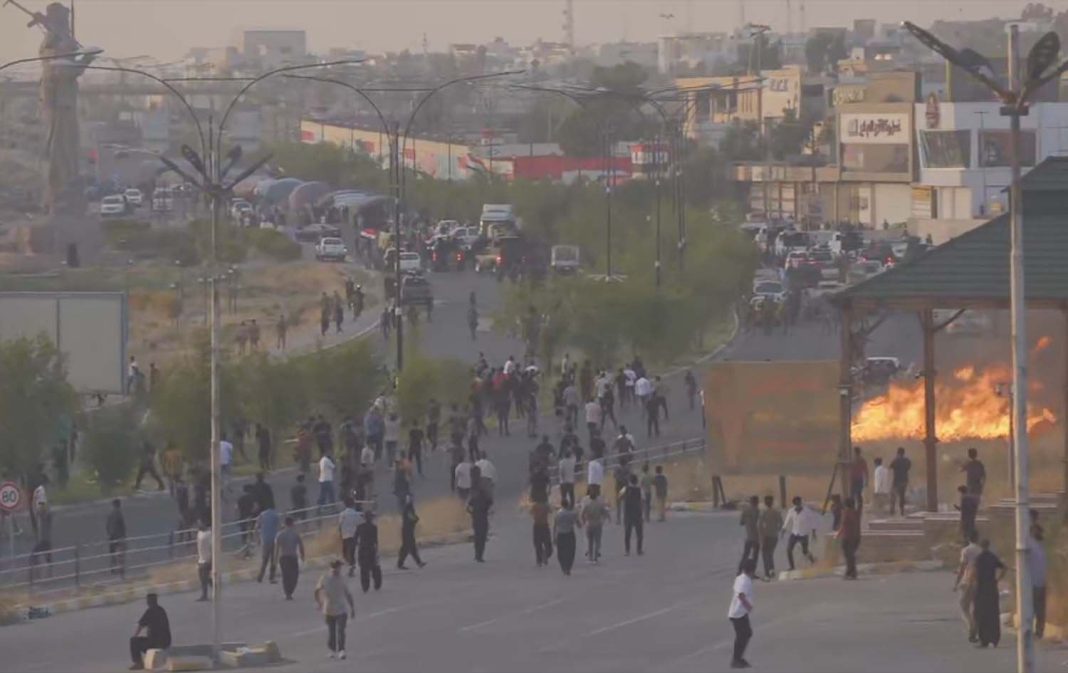Four demonstrators were shot dead on Saturday in clashes between ethnic groups in Kirkuk that broke out after days of tensions. Police and medical sources said all four were Kurdish.
Amir Shwani, a spokesperson for Kirkuk police, announced in a statement to reporters a curfew had been lifted and vehicles were moving normally in the city on Sunday.
But security forces had deployed additional troops on the streets to “prevent violence and protect civilians”, he added.
The dispute centres on a building in Kirkuk that was once the headquarters for the Kurdistan Democratic Party (KDP) but which the Iraqi army has used a base since 2017.
Iraq’s federal supreme court issued an urgent temporary ruling on Sunday obliging the government to delay procedures regarding the handover of a building in Kirkuk to the KDP, the state news agency reported.
The court ruling halted an order issued by Prime Minister Mohammed al-Sudani in his capacity as the commander-in-chief of Iraq’s armed forces to hand over the army building to the KDP on September 1, according to a copy of the ruling seen by Reuters.
Sudani in a cabinet meeting held after the court ruling urged political parties in Kirkuk to “steer clear of any potential conflicts, emphasising the need to avoid resorting to violence or clashes that could harm Iraq’s overall stability”, according to a statement from his office.
The ruling could raise tensions amid discussions over the return of the powerful Kurdish party to the city.
Iraqi Kurdish Prime Minister Masrour Barzani condemned the federal court ruling as a “farce”, he posted on social media platform X, formerly known as Twitter.
Military helicopters flew over the city on Sunday, according to four Kirkuk residents who spoke to Reuters by phone.
Shwani confirmed that four protesters had been killed and 15 people were wounded. Residents say police detained several people on Sunday who had participated in the clashes but police refused to comment on any arrests.
Kirkuk, an oil-rich province in northern Iraq along the fault lines between the Kurdish autonomous region and areas controlled by Iraq’s central government, has been the focus of some of the country’s worst post-Daesh violence.
Arab residents and minority groups, who say they suffered under Kurdish rule, have protested the KDP’s return to the city.
